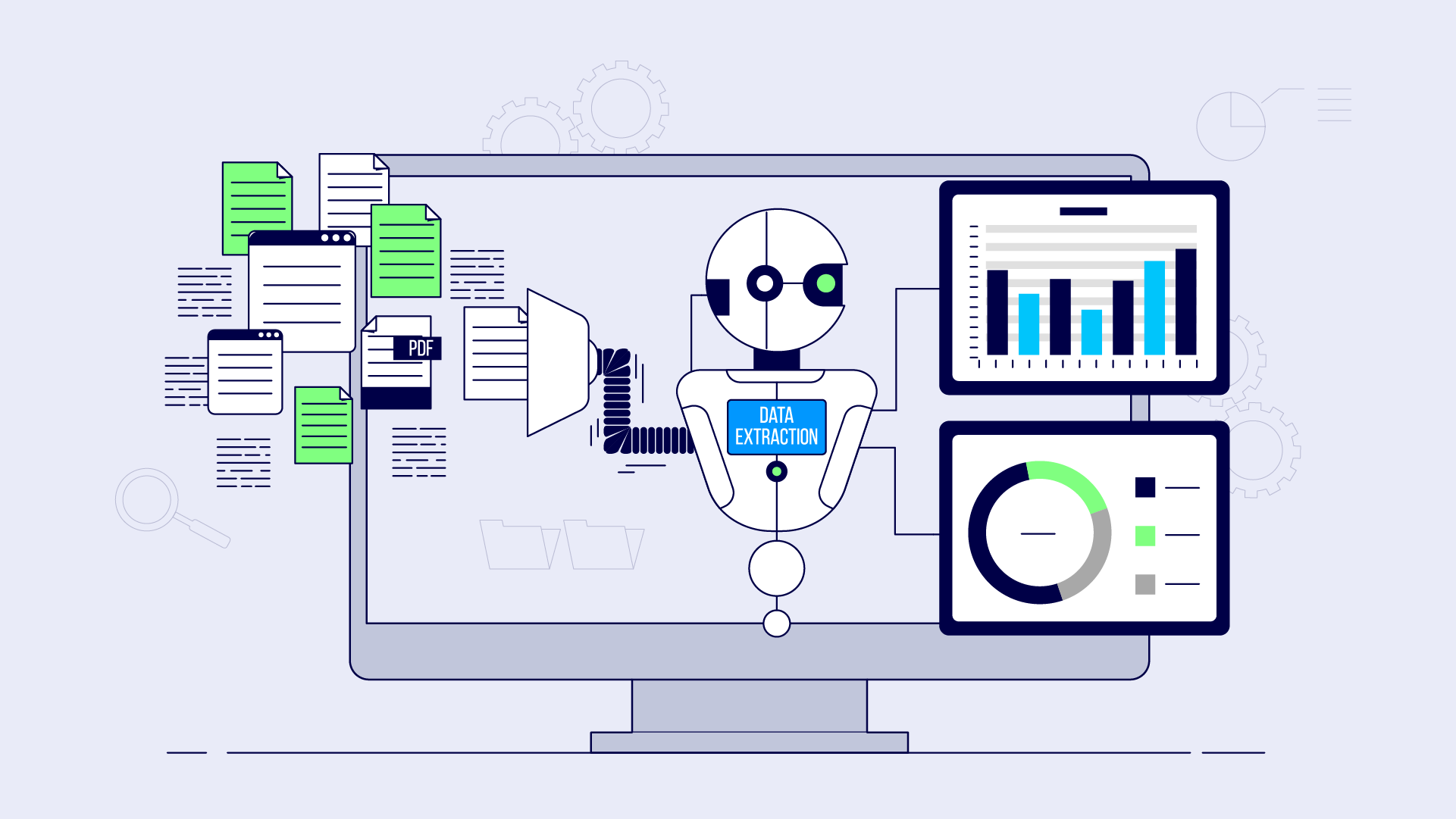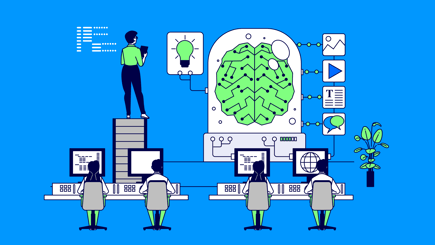
What is Applied AI? Use Cases and Trends For 2024
Applied artificial intelligence is an innovative technology that provides practical solutions to real-world problems in a variety of fields, from transportation to healthcare to communications.
Applied AI can not only optimize processes and improve efficiency but also transform the way people interact with their environment, from inventory management to critical business decisions.
In this article, we'll explore the benefits and challenges of applied AI, some use cases in supply chain optimization, and trends in 2024. We'll also explain how Acid Labs can help you implement applied artificial intelligence in your business.
Ready to explore the possibilities and keep your business ahead of the curve? Then read on!
What is applied AI?
Applied AI is the practical application of artificial intelligence techniques, algorithms, and models to solve specific problems. In other words, it involves taking AI out of the lab and applying it to real-world tasks in a variety of industries.
The essence of applied AI lies in its dedication to solving concrete problems rather than abstract theories. It involves developing practical and usable solutions in everyday environments, spanning industries such as healthcare, finance, transportation, and manufacturing, among others.
What are the benefits of applied AI?
Applied AI offers several significant benefits, including:
- Improve the efficiency, productivity, and quality of processes, products, and services, reducing costs and human errors.
- Improve strategic decision-making at a business level from a more objective point of view, based on the analysis of large volumes of data.
- Enhance creativity, innovation, and the development of new solutions to current and future problems.
- Contribute to sustainability, conservation, and environmental protection by optimizing the use of natural resources and reducing environmental impact.
What are the challenges of applied AI?
Despite its positive impact, applied AI presents challenges that need to be addressed, such as:
- Identify appropriate use cases where AI can add tangible value. This involves not only identifying opportunities for AI integration, but also validating the potential benefits in terms of cost savings, revenue generation, or performance improvement. It is necessary to align AI initiatives with the strategic goals of each company or organization and ensure a clear return on investment (ROI).
- Technical implementation difficulties. Applied AI requires an adequate technological infrastructure that guarantees the systems’ availability, scalability, and security. It also requires qualified and trained personnel to design, develop, implement, and maintain applied AI solutions and integrate them with existing technologies. The quality and maintenance of data, which is the essential input for the operation of applied AI, must also be ensured.
- Adopt a data-driven culture. Applied AI requires a paradigm shift in how organizations think and act, basing decisions and actions on data and evidence rather than intuition or experience. This includes fostering a data culture that encourages its use, analysis, and learning, as well as innovation and experimentation. It also means establishing data governance that defines policies, roles, and responsibilities for data management.
Use cases for AI in supply chain optimization
The supply chain is an ideal area for applying artificial intelligence because of its complexity, dynamics, and strategic relevance. According to a McKinsey study, applying AI-based forecasting to supply chain management can reduce errors by 20-50%, and translate into a reduction in lost sales and product unavailability of up to 65%.
Here are some examples of use cases where Acid Labs has applied AI to the supply chain, as well as the industries where its use is most prevalent:
1. Inventory Optimization
Using artificial intelligence to predict optimal inventory levels can significantly reduce the costs associated with overstocking and out-of-stocks. This approach is particularly beneficial for industries such as e-commerce, pharmaceuticals, and automotive, among others.
For example, AI can analyze historical sales data, consumption trends, and seasonal factors to determine the amount of inventory needed to meet demand.
2. Intelligent Warehouse Management
AI can also be used to optimize the placement and retrieval of products in warehouses, improving efficiency and reducing response times. For example, AI can use sensors and cameras to track the location of products in the warehouse and generate optimal routes for workers. This approach benefits industries such as logistics, retail, and manufacturing.
3. Routing and Transportation Logistics
AI calculates the most efficient routes for product delivery, saving time and money and improving the customer experience. For example, AI can consider factors such as traffic, weather conditions, and delivery schedules when calculating routes. This application is beneficial in a variety of industries, including transportation and logistics, e-commerce, and distribution.
4. Automate Purchasing and Procurement
AI offers the ability to automate the purchasing process, accurately identify the best suppliers, and negotiate optimal prices. This capability is relevant to industries such as construction, healthcare, and financial services. AI also reduces the risk of fraud, corruption, and human error in this area.
5. Supply Chain Risk Management
AI identifies and assesses potential risks in the supply chain, enabling companies to take proactive steps to mitigate them. This approach is particularly relevant in sectors such as finance, healthcare, and energy. AI can help prevent and resolve issues such as supply shortages, production disruptions, demand fluctuations, natural disasters, cyber-attacks, and more.
Four applied AI trends in 2024
This year is expected to see continued growth and rapid evolution of applied artificial intelligence. Some of the most prominent emerging trends are:
1. Democratization of AI
This paradigm shift aims to make artificial intelligence accessible to more users, from businesses of all sizes to individuals without extensive programming skills. By broadening access to AI, it enables the development of transformative applications, democratizing the benefits of innovation and fostering a more inclusive environment.
2. Multimodal AI
Multimodal AI models enable AI to understand information across different modalities, such as text, images, audio, and video. This results in systems that process information in a way that more closely resembles human cognition, and holds promise for areas such as healthcare and finance, where contextual AI can provide deeper insights and support more informed decisions.
Moving beyond the limitations of unimodal systems, this evolution toward richer insights promises to create more natural and engaging interactions between humans and AI.
3. Augmented Working
AI is having a major impact on the work landscape by automating tasks, optimizing processes, and bringing new insights. Rather than simply replacing, AI complements and augments human work, enhancing people's capabilities and performance.
This trend is known as augmented working, where AI is used to improve the work experience and outcomes. For example, by providing personalized information, training, and coaching, assisting decision-making, facilitating collaboration, or stimulating creativity.
These advances require a redefinition of traditional roles, highlighting the importance of training programs to effectively harness the potential of AI. The key lies in the synergy between AI's analytical capabilities and human creativity, along with emotional intelligence, thus reshaping the work environment.
4. Responsible AI
While AI promises to improve the quality of life, its advancement poses crucial challenges in areas such as privacy, security, fairness, transparency, accountability, and ethics. Society demands AI that is aligned with human values and social norms, respecting individual rights and freedoms.
In this context, the trend of responsible AI emerges, a set of principles, practices, and tools aimed at ensuring that AI is ethical, fair, transparent, and accountable. This approach addresses the social and legal implications of AI, employing techniques of auditing, explainability, verification, and impact assessment. The aim is to ensure that AI meets standards of quality, trust, and legality, thus responding to society's growing expectations.
Want to implement applied AI? Rely on a strategic partner
Applied AI can transform the way you use data to drive business success. However, its implementation requires deep technical knowledge, an understanding of your business problems, and efficient execution aligned with your goals.
If you want to implement applied artificial intelligence in your organization, you need a strategic partner like Acid Labs to guide you through every step of the process.
What sets Acid Labs apart is our unique combination of deep technical expertise and a consultative approach. We not only implement solutions but also get to the heart of your business challenges.
Through in-depth analysis of your environment and open, collaborative communication with your team, we focus on understanding your business problem to deliver customized solutions that optimize operational efficiency, reduce costs, improve decision-making, and give you the ability to predict market trends and behaviors.
If you're ready to implement AI in your business, don't hesitate. Contact us to find out how applied AI can help your business!
Publication date: February 8, 2024.





